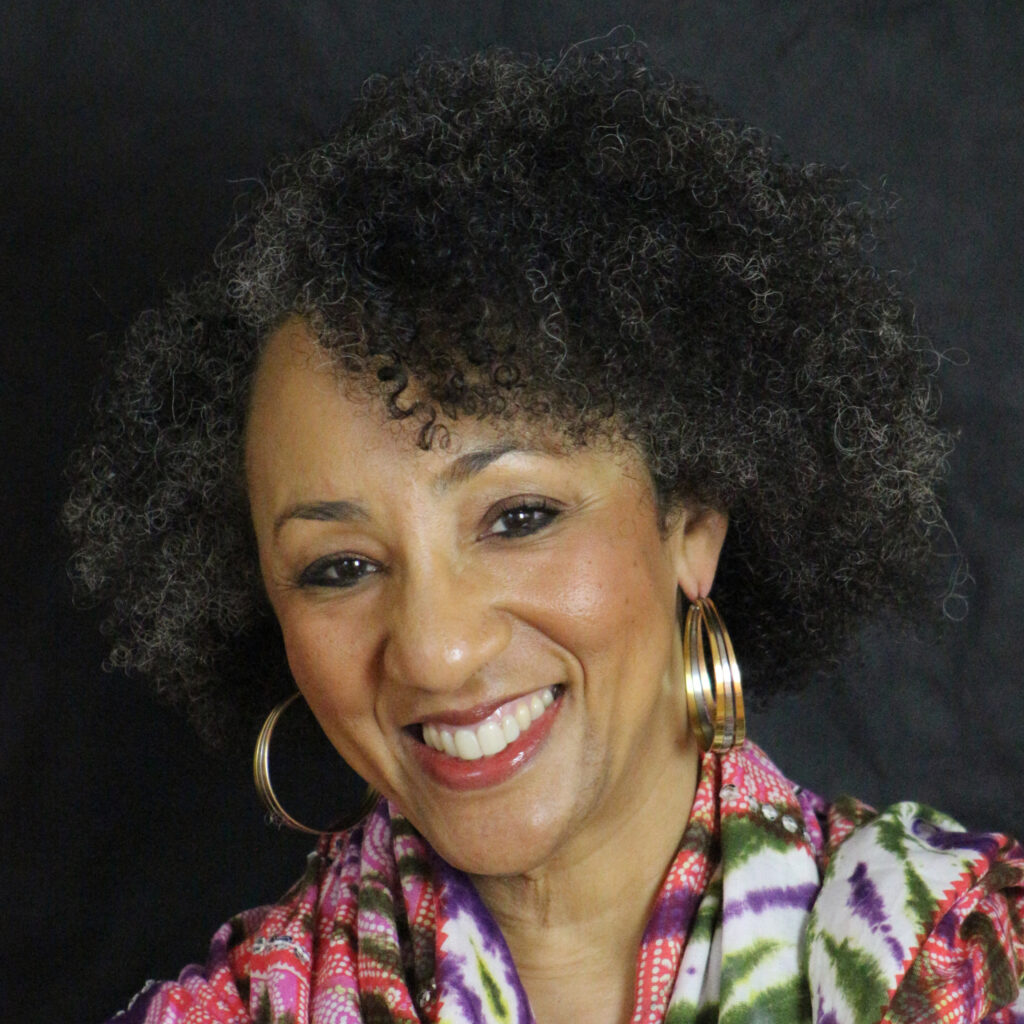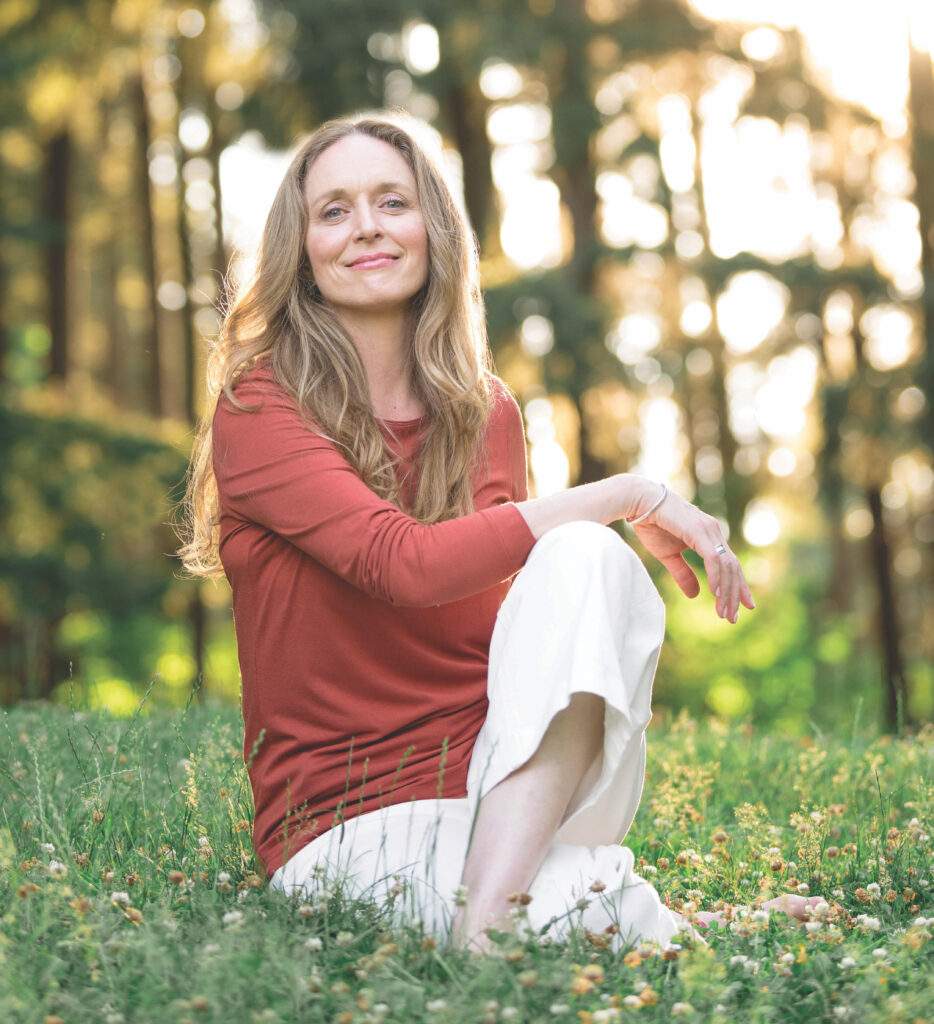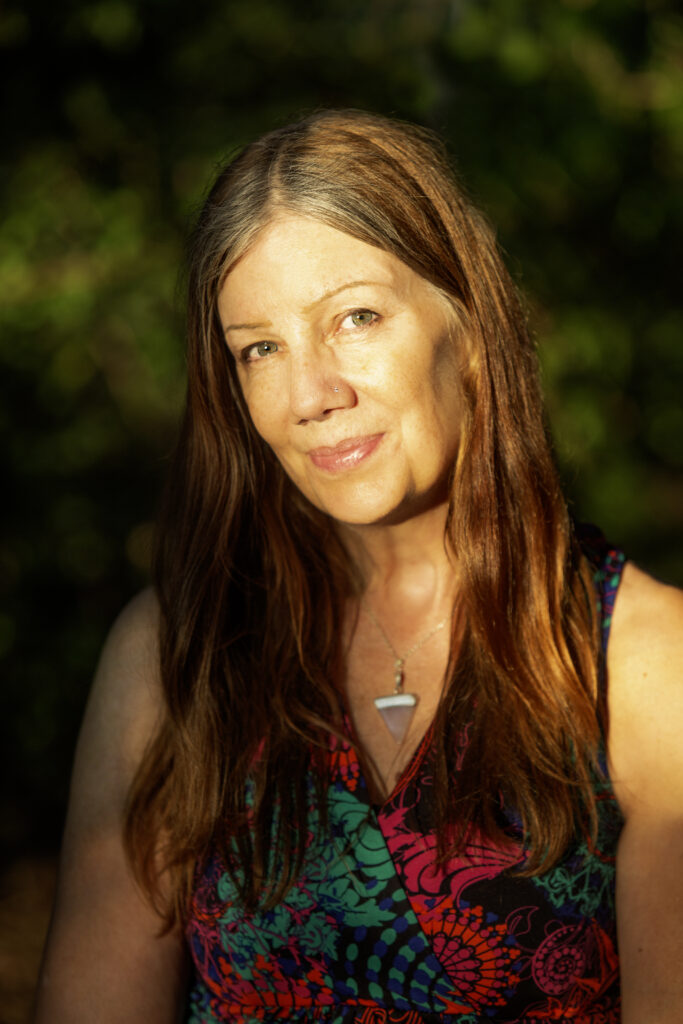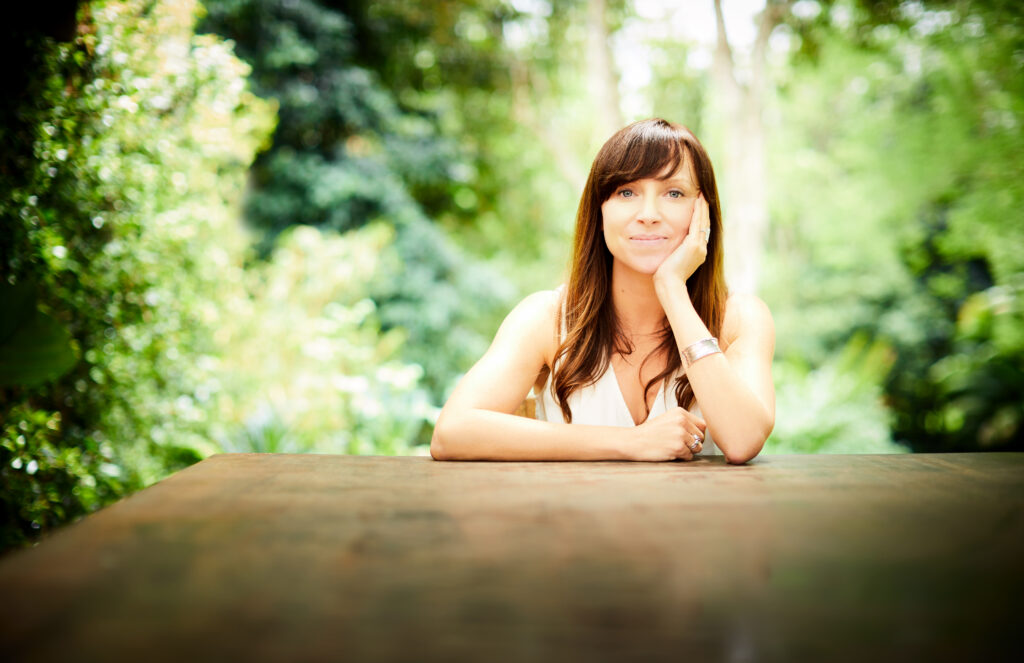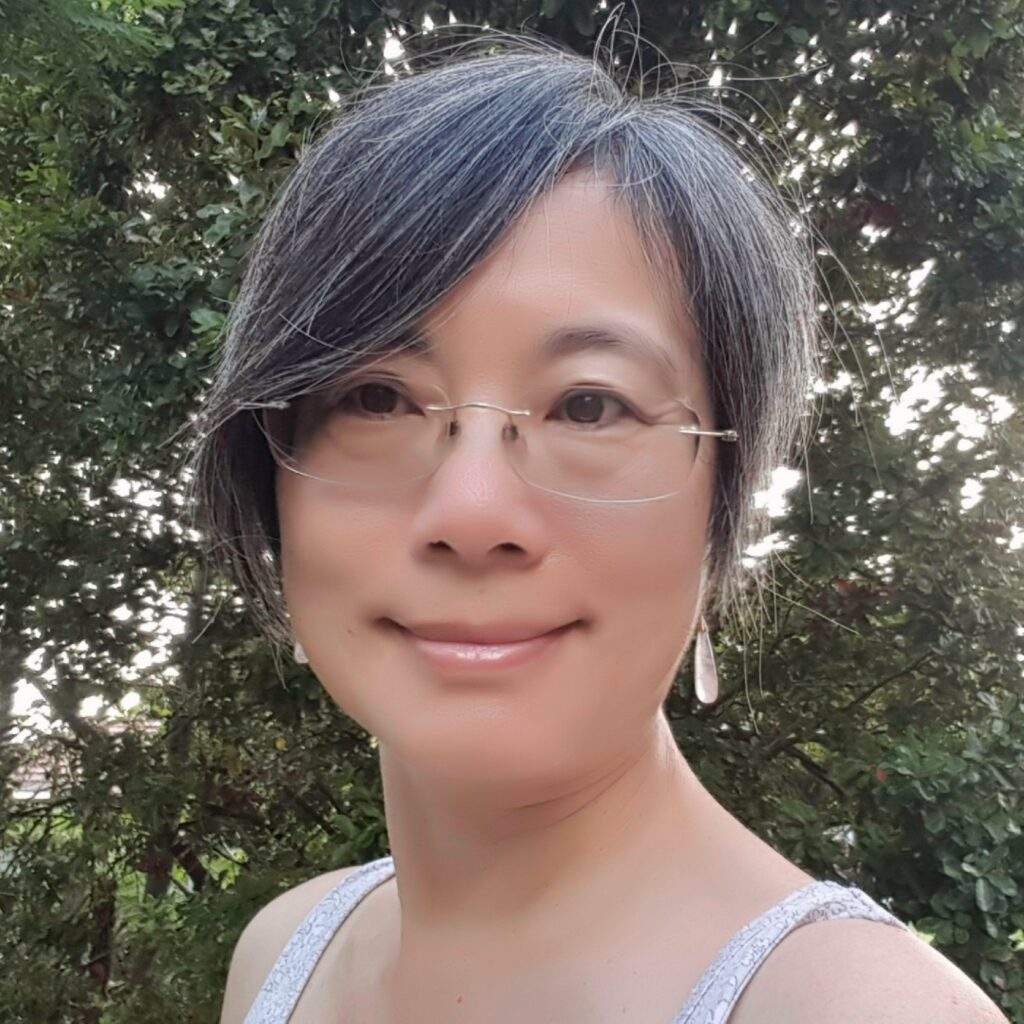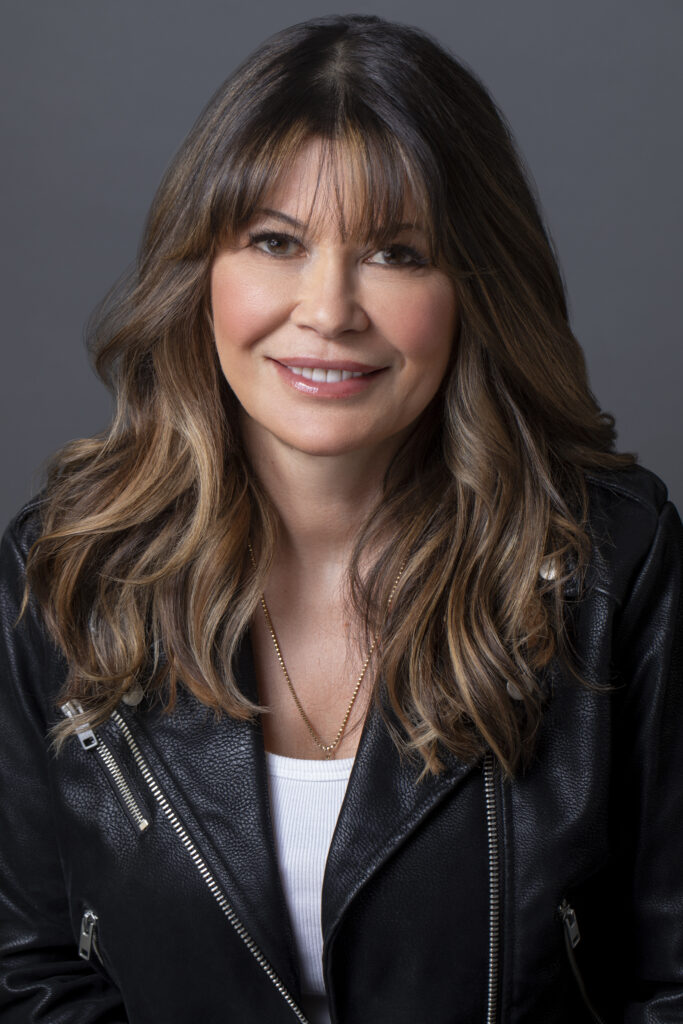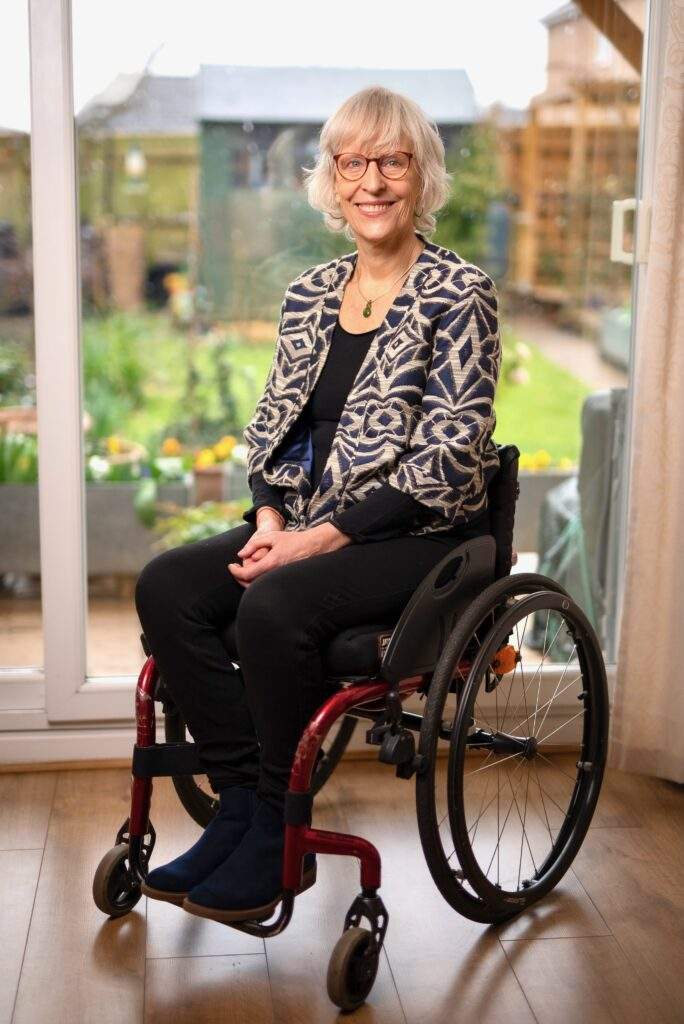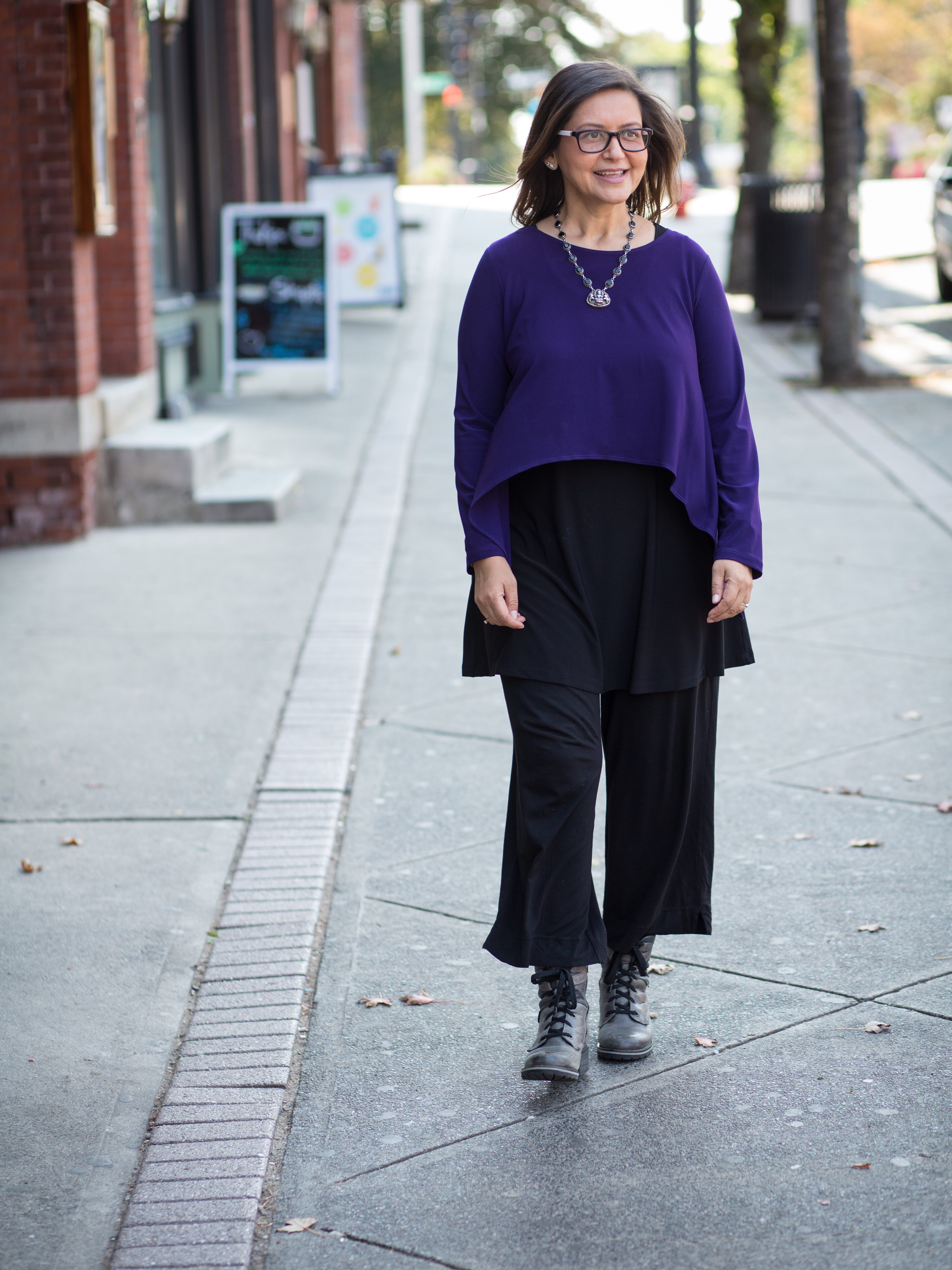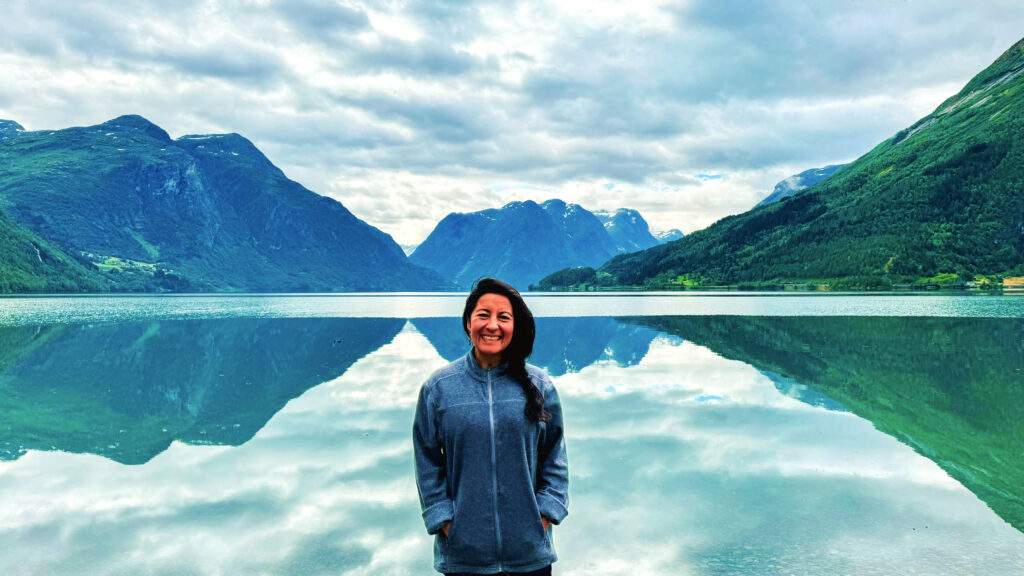The women platformed here show us what’s possible when we honor ourselves and honor each other. In this fifth installment of our feature shining a light on powerful women—nominated by their peers—who are leading the mindfulness movement, a common thread ties each of their stories: the strength to live with open eyes and an open heart, even when it would be easier to shut down and tune out. They exemplify the courage to listen deeply, to be fully present with themselves and the world around them, to welcome the moment and work with it. They’ve each shaped unique practices that nourish their growth and calling. And in sharing their stories, they bolster us with inspiration so that each of us may, in our own way, do the same.
Embrace What’s Broken
Brenda K. Mitchell
Pastor, Activist, Teacher
All her adult life, Brenda K. Mitchell has rightly been known as a strong tower in her community: driven, politically active, rising up in her career. As a pastor, she cares deeply for others and gets things done.
When her 31-year-old son Kenneth was killed by gun violence in 2005, leaving behind two young sons with another on the way, Brenda tried to keep being that strong tower. She had grandsons to care for and people who needed her.
She didn’t understand then how trauma affects both mind and body. Grief took an immense toll, and her doctor told her she needed to stop everything. “As strong as I’ve always been,” she says, “I had to stop and embrace my brokenness so that I could finally start to heal.”
“As strong as I’ve always been, I had to stop and embrace my brokenness so that I could finally start to heal.”
Pastor Mitchell took her doctor’s advice and rested. At a grief group, she was asked to try a mindfulness retreat with other survivors of gun violence.
At the retreat, she discovered the “power of the pause” and how to be fully with herself and others in the present moment. She saw there were still pieces of herself left unattended, even in the midst of good healing work.
The compassion of mindfulness allowed her to make herself the priority in her healing process, to fully own all grief’s scattered pieces.
She committed herself to practice and leadership in mindfulness spaces, especially to help other survivors of trauma and violence.
Today, she incorporates mindfulness into all she does—as a leader, pastor, activist, and facilitator. “I realized how important this is to me, to work in communities of color and in the faith community,” she says. “Yes, you have God. Yes, you have therapy. But there still might be a need for deeper healing. We have to utilize all our resources, because trauma is real.” – SM
Center Love and Liberation
Shelly Harrell
Psychologist, Mindfulness Teacher, Founder of the Soulfulness Center
Motown was the soundtrack of Shelly Harrell’s childhood in the ’60s in Detroit. Earth, Wind & Fire’s That’s the Way of the World and Stevie Wonder’s Songs in the Key of Life played on repeat. “In those songs, compassion is so central, care for humanity is so central,” she says.
She credits music as her first ever mindfulness teacher, dance as her first form of meditation, “a place I could come home to.” When she was a teenager, her father passed away and “all I could think to do was dance,” she says. “I started to trust coming back to my body and coming into presence with my inner life.”
Today, Harrell’s personal and professional growth are guided in part by seeking wisdom about mental health and healing beyond Eurocentric frameworks. “Stillness and silence are beautiful, but those aren’t the only paths to mindful presence,” she says.
“Stillness and silence are beautiful, but those aren’t the only paths to mindful presence.”
In the early 2000s she recognized a gap between Black Americans and the mindfulness community, caused not only by mostly white representation in mindfulness spaces, but also by the undercurrent of detachment that lies beneath attempts to attain individual calm and happiness. “For collectivist, communal, interconnected-worldview cultures, a message of detachment just doesn’t call,” she says. So she founded The Soulfulness Center where the focus is “love and liberation…centering connection and reconnection to what has been lost, stolen, forgotten,” she says.
“Mindfulness is about return, return to breath, return to that anchor again and again.” Harrell often refers to an African proverb, associated with the West African Adinkra symbol called Sankofa, meaning “to return and get it.”
“There’s this temporal interconnectedness that we’re invited into with past, present, and future ancestors and living descendants, to connect with that continuity of where we come from, where we are, and where we’re going,” she says. “For me it’s this bigger worldview, the wisdom of a collective, that centers interconnectedness as an ethic. And when we start there, what does that mean for how we live?” – AWC
Meet It With Love
Caverly Morgan
Founder of Peace in Schools, Teacher, Author
Before Caverly Morgan found mindfulness, she had no idea that she had any negative self-talk at all. On her first retreat, she thought the people who were talking about this were a little loopy. “To me, it wasn’t negative self-talk. These were just facts about myself. So there was this voice that was always driving the car, and I didn’t even know it.”
Her mindfulness practice started as a way to learn how to be in a different kind of relationship to this voice.
Once we realize the presence of that Inner Critic, she says, we’re conditioned to make the logical leap that there’s something we have to fix. We have to overcome the voice, learn more practices, and build more skills so we can get better at being compassionate. Then our lives will feel happier and more complete.
When we approach compassion with that energy of self-improvement, though, we just turn it into something else that we can get good at or fail at. We stay stuck in the mental ruts of good enough/not good enough.
“When we approach compassion with that energy of self-improvement, we stay stuck in the mental ruts of good enough/not good enough.”
Morgan offers gentle guidance for how to rewire these mental patterns. When the Inner Critic shows up, we don’t have to defeat it. We can greet it and meet it with a practice that’s steeped in unconditional reassurance.
Unconditional reassurances aren’t just saying the opposite of the Inner Critic by offering false positivity. They’re anchored in the truth, regardless of what’s happening or how we feel about it. So when we’re struggling with a sense of failure, the practice isn’t to say, You’re amazing and super-successful! It’s Whether you succeed or you don’t, I love you no matter what.
Our mindfulness practice, then, isn’t a tool we wield to change what we don’t like about ourselves. Rather, it’s like a life preserver we hold onto when we’re flailing, until we feel safe enough to simply float again in the vast ocean of love. Our practice helps us return to presence, and the more we return to presence, the more we sense the reality that compassion is already in and around us—that compassion is actually a natural byproduct of who we authentically are. We don’t have to make more of it for ourselves or other people; we just need to sit still long enough to allow it to naturally emerge. – SM
Celebrate Who You Are
Sue Hutton
Social Worker, Mindfulness Teacher, Disability Rights Advocate
Sue Hutton has been working with neurodevelopmentally disabled adults, as well as their families and caregivers, since her 20s—and practicing mindfulness for even longer. These communities offer a beautiful place to practice, she says. “I love celebrating our differences and getting to know people’s individual ways of being and helping celebrate who they are.”
Compassion has always motivated her. As a child, her mother’s suicide attempts awakened her desire to help ease suffering. “My experiences of being an outsider or alienated rested within me and really strengthened my interest in validating other people and never wanting anyone to feel like an outsider.” At the Azrieli Adult Neurodevelopmental Centre in Toronto, Hutton works alongside paid autistic advisers to develop and adapt mindfulness curriculums for neurodivergent communities and caregivers.
Earlier in her career, Hutton specialized in providing disability rights education to disabled adults and their families. And because there is also neurodiversity in her own family, she says, “Weaving access to justice and accessibility rights into my mindfulness practice was a natural fit.”
“I love celebrating our differences and getting to know people’s individual ways of being and helping celebrate who they are.”
Although conversations around disability and neurodiversity have become more common, including in the mindfulness sphere, meaningful change lags behind. She says she often witnesses tokenistic actions that result in even more exclusion, instead of a genuine commitment to the work of inclusion and accessibility rights.
Alongside systemic change, Hutton also believes in the power of self-compassion. She notes that with standardized meditation instruction, it is assumed that we all experience the practice in more or less the same way, so self-compassion is particularly important for neurodivergent meditators.
“Every single person who sits down to meditate is doing so through the fabric of their wiring and their brain structure,” she says. “For me, it is so important to know that each person is going to have their very unique and individualized way of experiencing mindfulness, and to honor and accept that, hey, we all do this differently.” – AT
Find Your Strength
Melli O’Brien
Mindfulness Educator, Entrepreneur, Mental Health Coach
As a teenager, Melli O’Brien went to her public school library and pulled every book she could find on mental health and happiness.
At the time, her days were defined by deep depression and an eating disorder fueled by a belief that she wasn’t enough. Meanwhile, the Iraq war raged on and she struggled to make sense of world leaders taking actions that harmed so many. She saw only two paths ahead: One would lead to taking her own life and the other would mean trying to heal, build inner strength, and maybe be part of the change she wanted to see in the world.
“If I believed all those voices and if I didn’t transform them, I don’t think I would have been able to help so many people,” she says today. “That’s a really good reason to unlock your own gifts, so that you can share them with the world and do your own little thing, no matter what it is, to make other people’s lives a bit better too.”
Her study of happiness led to two lessons that changed her life: that inner strength is a skill you can build, and that mindfulness is one way to cultivate it.
“That’s a really good reason to unlock your own gifts, so that you can share them with the world.”
“Within a couple sessions of mindfulness training I had the experience of understanding I’m not my mind, I’m not my thoughts, I can get space… I got a taste of freedom,” she says. “I fell in love with the practice.”
O’Brien spent years nurturing her practice, which helped her heal and led her to become a mindfulness teacher. In 2015, she cofounded The Mindfulness Summit, which raised $500,000 for mental health charities around the world and led to her cofounding the popular app Mindfulness.com in 2020.
And then she burned out.
“The amount of adversity coming my way in one go really had me on my metaphorical knees,” she says. Around this time, the World Health Organization named a world mental health crisis, which she saw reflected not only in herself, but her clients.
“I had to get really still inside and really think about who I want to be now, how I want to serve now, how I want to live now,” she says. And the result was The Deep Resilience Method, and her forthcoming book by the same name.
“I think this book and this method are like a love letter to myself. It’s the answer to my own question of What do I need? And what I need is hopefully going to be what really serves other people when they want to show up in these crazy times we’re living in and be able to make positive change,” she says.
“One of the biggest obstacles that I’ve observed is people feeling like there’s no point, and it’s practices like recognizing your own strength that would help you get there.” – AWC
Come Home to the Body
S. Helen Ma
Clinical Psychologist, Mindfulness Researcher, Teacher Trainer
In 1998, S. Helen Ma traveled from Hong Kong to the US for mindfulness training with Jon Kabat-Zinn, founder of Mindfulness-Based Stress Reduction. She told him, “I know mindfulness helps, but I want to know how it helps.”
At that time, Ma had spent much of her career working in Hong Kong and Australia hospitals with people experiencing clinical depression. While she saw healing, she also saw relapse. Empathy and compassion fatigue threatened to take over—until a colleague introduced her to mindfulness.
“For psychology we would be very interested in people’s stories—what’s happened before now,” she says. But in mindfulness, “You don’t need to be concerned about the stories at all… Everything comes and everything goes. It’s so liberating.”
She learned she could say to herself, It’s just a thought that I’m not helping people, it’s just a thought that the suffering will go on forever. Instead, in this moment, what is happening?
“Everything comes and everything goes. It’s so liberating.”
Kabat-Zinn connected Ma with John Teasdale, a leading Oxford researcher, and together they conducted one of the first studies on mindfulness for clinical depression relapse. The study showed mindfulness is a viable intervention in clinical settings, revolutionizing the field.
Lately, though, she’s taken a step back from her career in researching and educating about mindfulness to be a full-time caregiver to her husband, who has dementia.
“I’m forever grateful for the practice,” she says. “There’s still attachment, there’s still aversion, there’s still joy, there’s still sorrow, and sometimes the narrative is so thick… But I can recognize, right now my heart is hurting. So can I allow my heart to open up, to fill with sorrow, to feel the grief? Let me see how long it will last and when it will fade.
“It’s very difficult now in this very fast-paced and electronic age, but if we can just allow for a moment of stillness and coming back to the body and sensing how the body is tensing up… There’s so much wisdom that starts with being mindful of the body,” she says. “It’s coming home, you know. If everyone in the world could come home, it would be a different world.” – AWC
Create New Paths
Nanea Reeves
Founder and CEO of TRIPP
Nanea Reeves learned to meditate, she says, before mindfulness “was even a thing.” Her mother struggled with mental illness and addiction, and 15-year-old Nanea (whose name is Hawaiian for peacefulness and serenity) found herself in hospital, experiencing a crisis. A hospital therapist taught her a breathing technique to connect to the present moment.
“I believe it was one of the greatest gifts I’ve ever been given,” she says. After her younger sister, Vicki, died from a drug overdose, Reeves deepened her commitment to helping others access the healing tools meditation can offer.
“It’s been a real practice for me to learn how to open up my heart more. And now, to be able to put it into work is an honor.”
A vision began to take shape while she was working in the video game industry. Today her award-winning company, TRIPP, offers virtual reality- and AI-powered guided meditations. “There are many paths up the mountain,” Reeves says. “If we can give people the experience of having present-moment awareness through this method, can it help them translate that into the physical world as well?”
The TRIPP app’s AI guide, Kōkua—a Hawaiian word for support and selfless giving—generates guided meditations tailored to a meditator’s mood, and adjusts with their feedback. While not meant to replace human support, Reeves describes it as “that compassionate voice that you can connect to at two in the morning.”
“As a kid who had to deal with a lot of violence in the home, I tended to really close off my heart, because it had been hurt so much,” she says. “It’s been a real practice for me to learn how to open up my heart more. And now, to be able to put it into work is an honor.” – AT
Hold It Lightly
Vidyamala Burch
Mindfulness Teacher, Writer, Founder of Breathworks
After 50 years of living with chronic pain and 40 years of meditation, Vidyamala Burch says, “I laugh much, much more than I used to.” She smiles. “I love telling people that because it’s so surprising.”
“I think one of the fruits of long-term practice is an ability to hold life lightly. Take it seriously, because it is a very serious business, but hold it lightly.”
Burch is the founder of Breathworks, a charity based in the UK that teaches people living with chronic pain, illness, and stress how to live a fuller life with the help of mindfulness. Her approach comes from her own lived experience of pain.
As a child, she lived an active, outdoorsy life in New Zealand and dreamed of becoming a wildlife officer. But that all changed when her spine was fractured, once at the age of 16 and again at 23.
“You can’t really be mindful without being loving, and can’t really be loving without being mindful.”
Lying alone in an intensive care unit after the second accident, faced with intolerable pain, she didn’t know how she would make it to morning. Then she realized that all she had to do was make it through one moment, then one more, and in this way she made it to dawn.
“As human beings, we’ve always got two options. One is to turn away from suffering, and the other is to acknowledge it and see if we can keep our hearts open,” she says. “I always say to people at Breathworks, ‘You’re heroes because you’re willing to look at your mind and you’re willing to be in your body.’”
At Breathworks, they teach people how to embody a middle way between denial and overwhelm, first with their own pain but also with global issues. “If we had billions of humans who were able to be with whatever’s happening with an open heart and not tipping into either denial or overwhelm, we might have a species that was quite well-equipped to deal with the challenges of our age.”
“Just keep practicing. This is what the world needs. This is what we need as individuals,” she says. “You can’t really be mindful without being loving, and can’t really be loving without being mindful.” – AWC
Keep Your Heart Open
Shalini Bahl
Mindfulness Teacher, Researcher, Consultant, Author
Shalini Bahl feels that trees were her first mindfulness teachers. Years ago, after getting divorced and then moving with her son from India to Amherst, Massachusetts—leaving behind family, friends, and culture—she would sit among the trees, “contemplating my life,” she says. “I’d have all these questions: Why me? What happened? Then I would get this sense or thought in my mind: Just breathe first, and you will get the answers.”
This reflective experience sparked her mindfulness journey, and she pursued training with luminaries including Jon Kabat-Zinn and Mirabai Bush. In her academic career, she began sharing the practice with her marketing students. Eventually she redirected her full-time work toward mindfulness, not only teaching, but offering organizational consulting as well as leading research on beneficial ways to be mindful in marketing and business. “What I’m really interested in is using these mindfulness skills for real-world change, to create a better world.”
If that sounds simple, it’s not. While serving as an Amherst town councilor, Bahl realized that the qualities she’d been honing in meditation—compassion, equanimity, curiosity—weren’t always translating to the way she was showing up. So she developed a framework for acting and living mindfully in everyday life, using eight habits rooted in foundational contemplative teachings.
“The important thing is that we keep our hearts open, and we continue to keep our eyes open and see each other along the way.”
This framework forms the basis of her book Return to Mindfulness, published in January 2024. Its reminders, she says, “allow us to take a breath, to step back: Am I acting from a place of reaction, default bias, unconscious bias? Or is it from a place of spaciousness, ease, and clarity?”
She’s also noticed how cultivating openness and clarity can lead us to deeper compassion. One day, she was talking with an unhoused man on the sidewalk, and a passerby gave the man a bag with two croissants. Immediately, he offered one to Bahl. This act of selfless generosity moved her deeply. “I had judged him as someone who was there on the street, who needs my help.” They became friends, enriching her understanding of shared humanity.
At the time, she set an intention: “For now, I’m going to show up for him and stay open. Don’t close my heart. And when I can do more, my heart and my eyes will be open to seeing that opportunity.” Later, when she was elected to town council, that intention gave her the courage to speak up in support of shelters for unhoused people and others who needed help.
“I think that’s part of living compassionately, when we don’t know what we can do right away,” she says. “But the important thing is that we keep our hearts open, and we continue to keep our eyes open and see each other along the way.” – AT
Tell a New Story
Yuria Celidwen
Scholar, Researcher, Teacher, Indigenous Nahua and Maya
When Yuria Celidwen talks about contemplative practice, she’s describing something much more expansive than solely what’s going on in the mind.
“From the Mesoamerican tradition specifically, but generally in many Indigenous practices, it’s also about the emotional state, the heart that is involved with the body that informs the mind processes that end up revealing…that animating principle of life.”
As a child, she already possessed this rich awareness of complexity. From her parents, grandparents, and great-grandparents, she says, “I learned a lot about how to really be with the landscape, be part of the landscape of a larger community.” Then, starting in elementary school, she faced racist discrimination. Inhabiting these conflicting worlds led her to the study of identity, consciousness, and cultural narratives.
Today, a growing range of Indigenous perspectives is found within contemplative studies; when Celidwen entered the field 15 or 20 years ago, there was no such representation. “I was the one to push for Indigenous wisdoms to be part of this field, and to also look at them as sophisticated systems of transforming our sense of identity and cultural identity, examining those identities, and then creating social and environmental transformation for well-being,” she says.
“How do we learn to listen to the world? To the whole living, beautiful mother planet that we inhabit?”
Mindfulness is often interpreted in the West as a set of tools to benefit primarily the individual self. In the Indigenous epistemologies that she researches and teaches about at the University of California, Berkeley, there’s a vision of “a responsible community, an ethical community,” where there is room for every being to be heard and valued as kin. “How do we learn to listen to the world? To the whole living, beautiful mother planet that we inhabit?” she asks.
These are glimpses into what Celidwen calls the Ethics of Belonging. It’s elucidated in her academic work, as well as explored in her new book, Flourishing Kin: Indigenous Wisdom for Collective Well-Being (published November 2024).
“We know that humans learn through stories,” she says. And old narratives that haven’t served us—“about uniqueness, personal achievement, material possessions, using nature as a resource”—can be composted, she says, “for the nourishment of a new story, but a new story that brings us together.
“To relate better, to listen better, to express better, to create better, to nourish our landscapes better—so we realize that yes, we are part of this system, and we can be part of the change.” – AT


